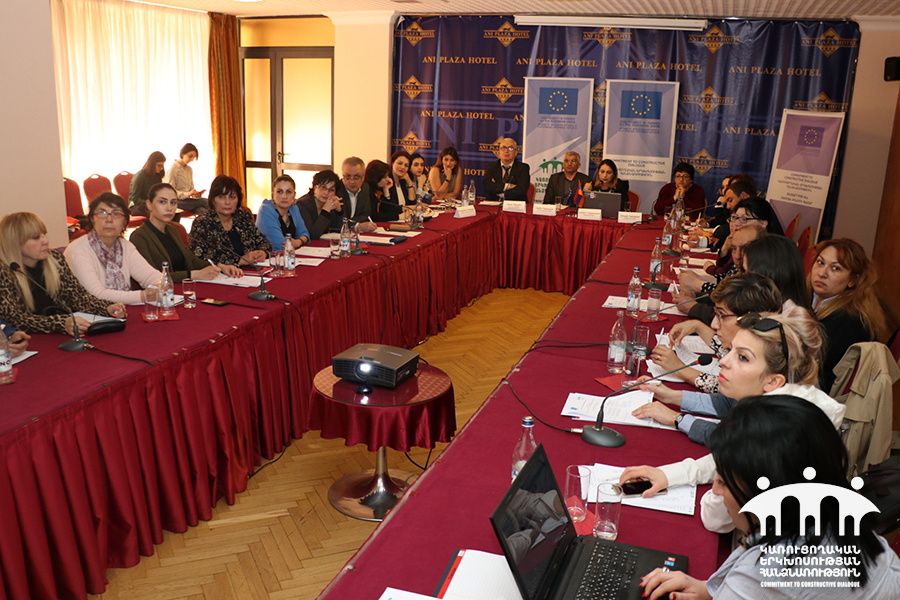On 5 April, a discussion on “Opportunities for introducing gender budgeting in Armenian communities” was organised within the framework of sub-grant implemented by the “Winnet Armenia” Network of Women’s Resource Centres in the scope of the EU-funded “Commitment to Constructive Dialogue” project.
Mr. Armen Galstyan, Executive Director of the International Center for Human Development thanked the attendees for their presence, noting that the meeting is “without reference” format, allowing all participants to express their point of view and voice the existing issues.
Project expert Ms Shushan Ghahrikyan presented the local self-governing bodies-public relations on the example of 10 large communities. She noted that studies were conducted in the communities of Berd, Areni, Gladzor, Gorayk, Sisian, Goris, Tatev, Tegh, Kapan and Meghri.
It was noted in the discussion that the gender budget is a resource allocation system for the exercise of equal rights and equal opportunities policies according gender and vulnerability, a system that should be open for public expertise and discussion.
The gender budget does not differ essentially from the current budgetary process, but acts as a unique option. It gives a deeper insight into.
- what you manage,
- what are the consequences of the decisions made,
- what raises their effectiveness in terms of influence on women and vulnerable groups of the population, based on the tested socio-economic procedures.
The “Commitment to Constructive Dialogue” project is implemented with the financial support of the European Union by a consortium of civil society organisations, which are the “Armenian Lawyers’ Association” NGO, Agora Central Europe o.p.s (an NGO from the Czech Republic), the “Armenian Center for Democratic Education-CIVITAS” NGO, the “International Center for Human Development” Public Organisation, the “SME Cooperation Association” NGO and the Union of Communities of Armenia.
The project aims to enhance the influence of civil society organisations (CSOs) and CSO coalitions/networks on public policies in Armenia. This will allow organisations that are already working in sectoral coalitions to access additional resources, new groups of civil society experts to come together and encourage their participation in the local and national policy agenda, to identify common concerns and priorities and approach government bodies with constructive and strategic policy engagement initiatives.















